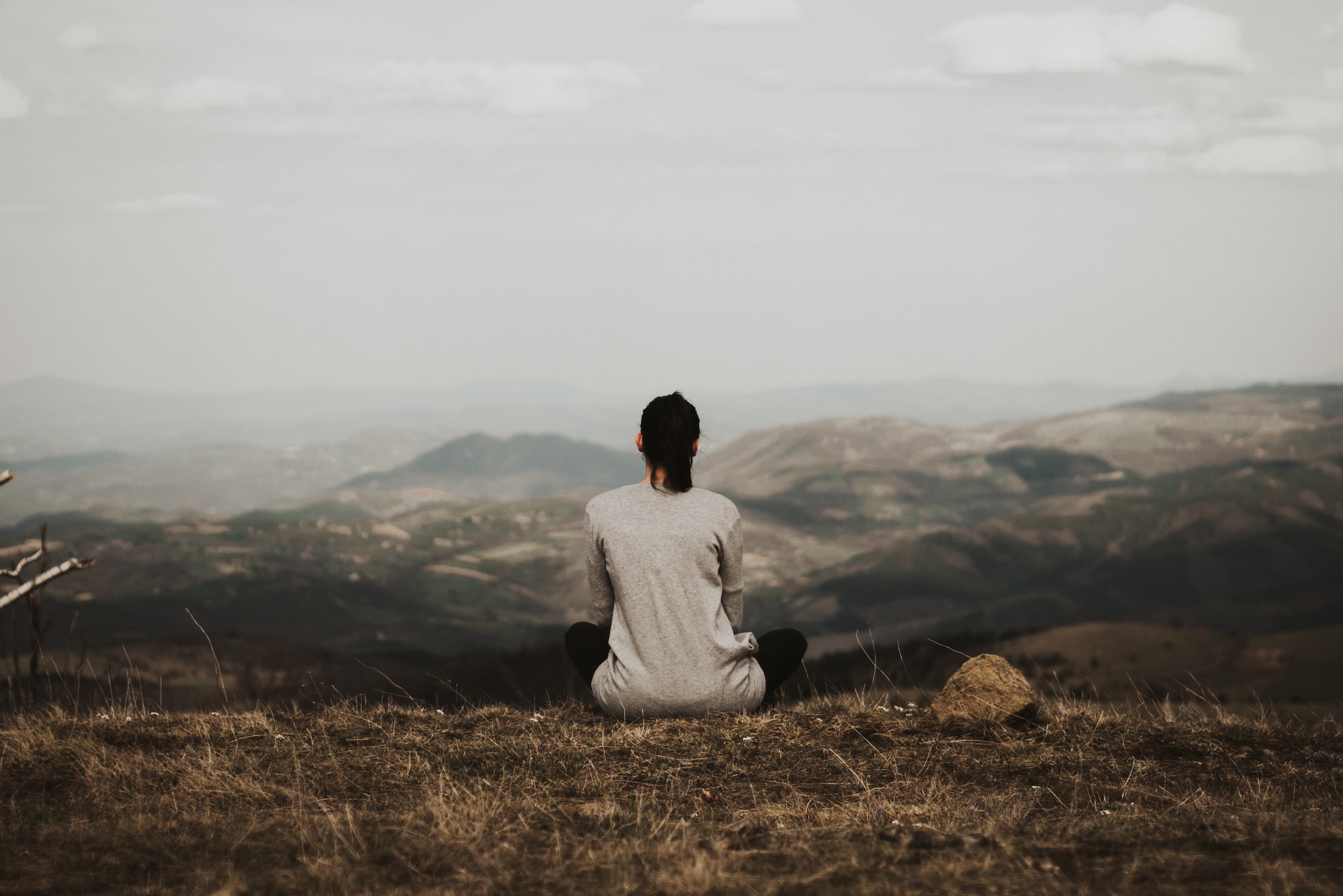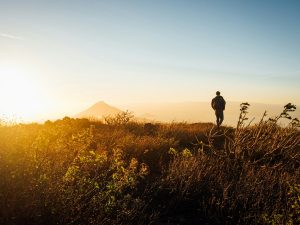Take a long, slow deep breath. Feel your feet on the ground. Focus on this moment—right here, right now.
While the coronavirus pandemic has impacted each and every one of us across the nation—and around the world— these past few months, the thought of slowing down right when things are picking back up might seem counterintuitive.
But studies suggest that mindfulness—the practice of being present, focused and intentionally aware of the present moment with curiosity—can have numerous positive effects on our mind, body and spirit, from improving our mood and decreasing our anxiety, to reducing emotional reactivity and preventing burnout. We also know that mindfulness helps us show compassion for ourselves and others because it encourages us to be accepting of things as they are, without trying to change them.
Caring spoke with three mindfulness experts about how a daily practice could help us become more aware of the goodness that surrounds us during a crisis—and how to come through it for the better. Here are five of their top tips.
1. Start with your breath.
To ease your way into a simple mindfulness meditation practice, meditation teacher and mother of five Josephine Atluri says to first sit in a quiet space and try out a simple “ocean breath” breathing technique to help get grounded into the present moment. Begin by taking a long, slow deep breath in through your nose, and without any pause, flow into a long, slow exhale out of your mouth. Then, flow your exhale back into your inhale without any pause. Allow it to flow back and forth continuously like the waves going in and out of the shore.
“By witnessing your breath and making sure you are flowing breaths continuously, you are focusing your mind on this single task, making you unable to think about anything that was stressing you out previously,” she added. The best part? Even kids can participate and can benefit right away.
2. Befriend yourself first to overcome loneliness.
“By meditating, you will learn how to live mindfully in everyday life outside of your meditation sessions,” says Dr. Teri Pipe, chief well-being officer and founding director of the Center for Mindfulness, Compassion and Resilience at Arizona State University. She points out that while loneliness is a natural part of the human experience, like pain or hunger, it is a signal that we need comfort and remedy. Interestingly, physical pain and loneliness activate similar parts of the brain, indicating just how real loneliness is and how important it is to pay attention to the signal it provides to us.
“Like other emotions, loneliness and isolation are ‘visitors’ who come for a time and then leave,” Pipe said. “Additionally, as we become more aware that loneliness is a shared human experience, we can begin to build empathy and compassion not only for ourselves, but for others who are also bound to experience loneliness as part of their humanity as well.”
3. Bring in music and the great outdoors.
Composer, entrepreneur and founder of MindTravel.com, Murray Hidary, believes in the power of music and attentive listening to open up the space within. For him, it was music that helped him overcome the grief and trauma associated with the sudden loss of his sister. “Music creates the space for reflection and contemplation which allows us to bring more awareness to each and every situation,” he said. “This deeper awareness connects us powerfully and compassionately to ourselves and others.” It’s not surprising then that sound, vibration, and music have been at the heart of so many spiritual and religious teachings and traditions. “It is a conduit to the divine,” he said.
Hidary also recommends bringing movement, music and nature together as he does in his SilentWalk recorded experience. You can walk alone or with friends and family and use your headphones to bring music along, too. In addition to Hidary’s MindTravel Music, Spotify, YouTube, and the meditation app Headspace all offer various mindfulness playlists for walking as well. “The healing that nature provides when we are on a walk on the beach, in a local park, or a hike up a mountain trail are paired with guided voice and music that connect the outer landscape to our inner landscape,” he said.
4. Use affirmations to temper anxiety.
Atluri recommends practicing a few minutes of meditation every day to prevent overwhelming feelings of stress and anxiety. She’s also a big believer in using affirmations, which are simple statements of encouragement and support that can be said to oneself in a declarative way. When we state something positive to ourselves, the idea is that it will take root within our being and we will start to feel it, believe it, and call it into our lives. Try saying the following phrases in your mind while sitting in meditation: “I am strong. I am safe. I am healthy. I am calm. I am love.” These simple phrases will offer you comfort and support during uncertain and challenging times, Atluri said.
For those who might be feeling guilty about taking time out of a busy schedule for a self-care activity, remember: when we take time to nourish ourselves, we can approach other people and issues from a place of calm and happiness—and we’ll be more likely to respond to challenging situations in a mindful and positive way. “We can give the best version of ourselves to the people who depend on us,” she added.
Try meditating over these 12 Scripture verses to bring peace during COVID-19.
5. You can only fail if you don’t try.
“Many people tell me they have failed at mindfulness or meditation, and upon further discussion, they tell me they have failed because they can’t stop their mind from wandering,” Pipe said. “But minds wander—this is not failure!” The mind wandering, thinking and daydreaming are all helpful signals that it is time to gently guide your attention back to the object of focus (the breath, the body, the conversation, eating or movement).
Because quarantine allowed us all to go within to reflect, we may have reassessed our priorities. Hidary notes that as we slowly open up and emerge into the world, we may experience some difficulties around engaging publicly with others after such extreme isolation. “This moment also gives us the opportunity to reimagine how we want to live in this new world and not necessarily go back to ‘normal,’” he said.
And as we do, fight through any fear or anxiety you might be feeling by understanding as Christ-followers how we maintain the right focus in uncertain days. Download this Scripture study and meditate on just how we see “God with us.”
Do Good:
- Download this Scripture study and meditate on just how we see “God with us” and overcome fear.
- Listen to this season of the Do Gooders Podcast to consider this time of refining we find ourselves in and how we can best evolve. As we move a little slower, as we reconsider our own purpose, talk to those around us and learn to embrace calmness, we have the chance to refine how we live and what we “go back to.”
- Give and get involved in the Fight for Good with The Salvation Army today.













Comments are closed.